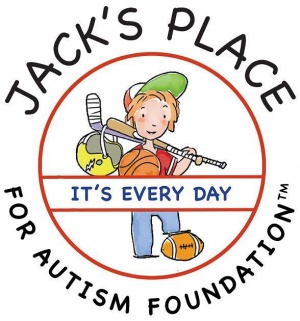Stereotypes are pervasive in our society and autism has a good amount of stereotypes associated with it. With that said, we can educate people on these stereotypes and help them understand that they are just that – stereotypes. As I’ve read more about stereotypes associated with autism, I would like to share some of these stereotypes and debunk them. By debunking them, we can inch closer toward reversing the negative stigma.
Here’s a list of three stereotypes often associated with autism.
1. People with autism lack creativity
A few days ago, I read a story about a boy with severe autism who found a passion for art. Think that’s an anomaly? I’ve read about children with varying degrees of autism that have a passion for making food and making wrapping paper for the holidays. In high school, I remember taking ceramics as a course. For several of the projects, I was allowed to use my imagination to create objects such as a candleholder. I was somehow able to conceive an idea of creating a candleholder that looked like a monster with its mouth open.
I remember drawing as a teenager, just doodling whatever came to my mind. I even made my own characters that I’d draw every now and then. As an arts and crafts assistant, I was able to see up close and personal how people are trying to introduce creativity to individuals with autism. Whether it was making something out of beads, pvc pipes, or just paper, glitter and other decorations, they were given the chance to display creativity.
The idea behind creativity is that you’re able to make something. Nobody said what it has to be. As long as you make it, with or without help, you display creativity.
2. People with autism have no emotional feelings
The idea that people with autism have no emotional feelings is strange. I remember working with children with autism several years ago who would display their emotion. Whether it was a child being happy or sad, they were able to display how they really felt. We always hear about meltdowns. They don’t happen without some kind of emotion attached to it. I know what it’s like to have that meltdown. I get overwhelmed and anxious to the point where I can’t calm myself down.
I know what it’s like to be happy. I experience that feeling when I’m with my friends and family, when I’m doing things I enjoy and when I receive good news or a gift of some sort. I know what it’s like to feel sad. Several months ago, my uncle took his own life. Less than a month later, my dog, who I grew up with for 17 years had to be put down. Nobody can tell me that I wasn’t feeling sorrow.
This idea that people with autism are oblivious to emotion makes no sense. As humans, we are born with emotion. We are born with feelings. We are not robots who can’t comprehend happiness and sorrow. We experience emotions just like you.
3. People with autism are geniuses
Ever since Raymond Babbitt was introduced to the world in the 1988 film Rain Man, people have drawn this idea that everyone with autism is some kind of genius. These individuals often seen as geniuses are known as savants. While we would like nothing more than to be geniuses, this is stereotype. Autistic savants are rare breeds who have a very special talent and/or ability. I am not a savant myself, nor do I personally know anyone who is an autistic savant. In reality, 10 percent of the autism population are savants.
There are more stereotypes often associated with autism and as such, we live in a world where people have expectations as to what autism is. The truth is that we are all different and we should be embracing diversity rather than trying to pinpoint people and label them as this or that. When we can do that, we will know that we are on the path toward reversing the negative stigmas associated with autism.
